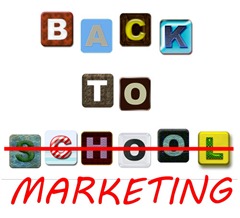 Are you tired of meeting competitors wherever you go?
Are you tired of meeting competitors wherever you go? That happened this weekend at the sold-out Canadian Personal Finance Conference (CPFC12) hosted by Preet Banerjee (LinkedIn) and Krystal Yee (LinkedIn). The main attendees were experienced bloggers and journalists. They all compete for a scarce, irreplaceable resource: your attention. Yet no fights took place.
You have many distractions and can scat at any instant. Writers compete by improving. They don’t prepare comparisons: more semi-colons than any other blog. They don’t have specials: 25% more words while quantities last. They don’t push fluff: new formatting; same great content.
But Wait

When we care about the subject, we go to more than one source. We want different perspectives from experts we trust. For instance, you won’t get all your marketing advice from one place.
Bloggers help themselves by helping each other succeed. They link to one another’s posts and leave comments on their blogs. By cooperating, they make their niche richer and deeper. That helps attract and retain readers.
Exceptions
Sometimes real competition prevents cooperation. If you’re looking for the lowest loan rate or the highest saving rate, you might only visit the site that Google ranks highest.In business, rivalry interferes. Will the Apple store ever say your needs would be better served by Windows or Android? At least you know the biases before you go in.
Clustering
Vendors cluster. You’ll find burger, pizza and sub places near each other. You get used to going to that area even if you don’t always buy the same thing.In downtown Toronto, the BMW, Mercedes-Benz and Porsche dealerships are nearby. You probably won’t buy all three (if any) but proximity helps you compare and contrast. You might try and buy a brand you weren’t considering before.
But First
If you are selling tomorrow, be very careful not to pitch people who are only interested in buying things that are about today. Before a marketer or organization can sell something that works in the future, she must sell the market on the very notion that the future matters.Personal finances are about the future. People who need help may be too busy with the latest iFrenzy to pay attention. What about your clients?
— Seth Godin, truth and consequences
Maybe your real opportunity comes from boosting awareness of the category of service you sell. You can’t do this alone. You need help from vendors in the same niche and credible advocates. Amplify each other (unless prohibited by corporate policy).
When your real competitors are ignorance and indifference, team up the way bloggers do. A bucket brigade gets better results faster. All win. As awareness builds, buyers become more plentiful and discerning. You now have an opportunity to earn your share (or more).
Links
- CPFC12: website, Twitter (#CPFC12)
- Squawkfox talks at CPFC12: The speaking secret from Kerry K Taylor
- Building trust with blogging at Word11
- Fixing what’s wrong with conferences and networking at the SMB Exchange
- Why you need a weak link to give excellent service
- When your customers fight back
- Truth and consequence (Seth Godin, Sep 23, 2012)
- Image courtesy of US Navy (Wikimedia Commons)





 If you're not motivated to learn, you won't. At least not very well.
If you're not motivated to learn, you won't. At least not very well.